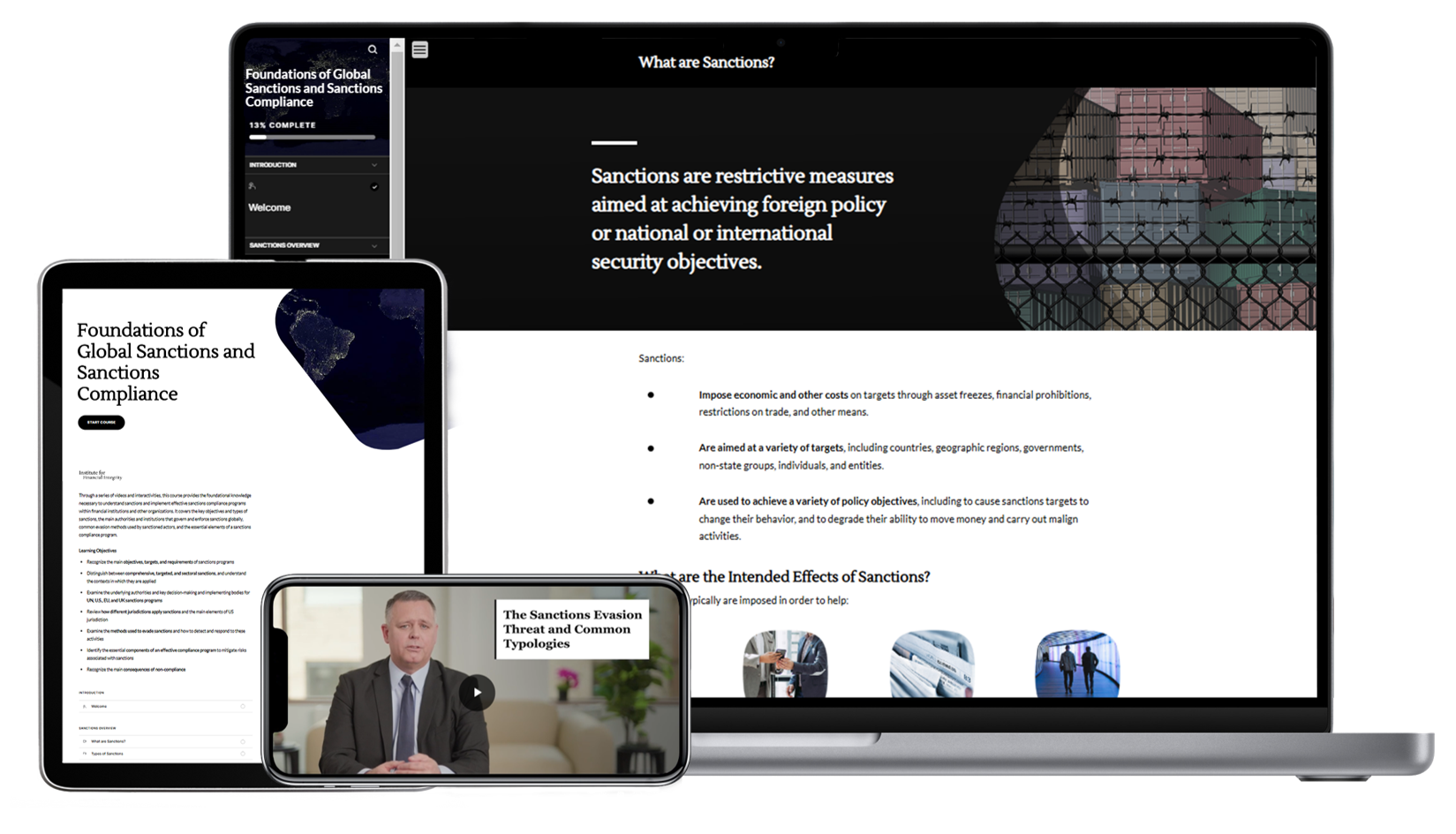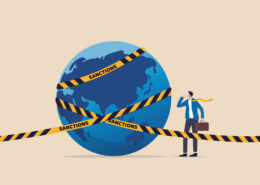Walking the Sanctions Tightrope
A Compliance Officer’s Guide
📅 February 18, 2025
📅 February 18, 2025
For compliance officers, navigating the world of sanctions can feel like walking a tightrope. Global sanctions frameworks are often intricate, constantly changing, and riddled with nuances that demand meticulous attention. Here’s a closer look at the key hurdles of sanctions compliance and why these challenges matter.
Sanctions are dynamic, especially in today’s volatile world filled with conflicts and evolving criminal activities. Governments and international bodies frequently update their sanctions lists, responding to global events like wars, political shifts, or human rights issues.
Imagine a compliance officer managing updates during an international crisis, where sanctions lists change overnight. Policies and procedures must adjust quickly to avoid violations.
For instance, sanctions targeting a specific country can expand rapidly in response to geopolitical developments. While modern tools help by quickly incorporating updates to sanctions lists, companies must still reassess risks, update internal systems, and retrain staff to ensure compliance. Now, multiply this across multiple jurisdictions, each with its own unique requirements, and the challenge of maintaining smooth operations becomes even more complex.
Operating globally means navigating a patchwork of sanctions rules that can vary across jurisdictions. Nations and global organizations have their unique approaches to sanctions, creating potential for conflict.
Finally, these variations in rules create challenges like conflicting obligations. A company in both the United States and the EU may find itself caught between U.S. sanctions and EU blocking statutes designed to counter those same measures, Since then, both the EU and the UK have imposed their own sanctions on Iran post-Transition Day 2023 when all remaining sanctions on Iran’s nuclear activities under UN Security Council Resolution 2231 expired, reflecting their autonomous approaches to addressing Iran-related issues.
The rise of cryptocurrencies and digital assets has added a new layer of complexity to sanctions compliance. Digital wallets, blockchain addresses, and crypto exchanges are now increasing targets for sanctions enforcement.
Take Blender.io, for instance – the first virtual currency mixer sanctioned by the U.S. Treasury in 2022 for laundering stolen virtual currencies for North Korea. Compliance teams should use continuously evolving tools to track blockchain transactions and identify sanctioned digital wallets and other potential risks. As digital assets grow in popularity, organizations must stay ahead of evolving regulations and ensure their systems can manage these novel threats.
Sanctions evaders are becoming more innovative, using methods like shell companies, fraudulent documents, and third-party intermediaries to conceal their efforts to circumvent sanctions and other restrictions.
Imagine trying to trace a shipment routed through multiple countries with altered paperwork to obscure its true destination and its restricted cargo. Advanced analytics and enhanced due diligence (EDD) are critical to spotting such tactics.
The stakes are high: failing to catch these schemes can lead to massive fines, reputational damage, and loss of market access. A single misstep can cost financial institutions millions and erode trust with regulators and clients.
Practical Tips for Compliance Officers
Sanctions compliance can feel like a moving target. With the landscape constantly evolving, compliance officers need to be proactive and strategic in their approach. In addition to having a robust sanctions compliance program in place, here are some practical tips to help you stay ahead of the curve, harness the power of technology, and lean on expert support to navigate these challenges effectively.
Geopolitical and economic developments can trigger updates at any moment. Staying on top of these changes is crucial to avoid costly missteps.
Technology is a compliance officer’s best friend. It can help you work smarter, not harder, by automating time-consuming processes and identifying risks faster.
You don’t have to navigate this complex world on your own. External advisors can offer valuable insights, especially in tricky or unfamiliar situations.
Sanctions evasion tactics are becoming increasingly sophisticated, often exploiting linguistic nuances, jurisdictional loopholes, and geographic complexities. Developing specialized expertise in these areas equips compliance officers to detect and address such risks more effectively.
By staying informed, embracing technology, investing in targeted training programs, and seeking the right support, you can confidently tackle the challenges of sanctions compliance. These strategies not only shield your organization from penalties but also build a compliance culture that earns trust from regulators and stakeholders alike.
Want to deepen your expertise in sanctions compliance? Our newly released Foundations of Global Sanctions course offers a comprehensive look at navigating the complexities of global sanctions. Plus, stay tuned for upcoming courses on Foundations of UK Sanctions and Foundations of EU Sanctions to broaden your knowledge.
Learn more and strengthen your compliance skills today.











 Lighting Up the Darknet
Lighting Up the DarknetThis site uses cookies. By continuing to browse the site, you are agreeing to our use of cookies.
Accept settingsHide notification onlySettingsWe may request cookies to be set on your device. We use cookies to let us know when you visit our websites, how you interact with us, to enrich your user experience, and to customize your relationship with our website.
Click on the different category headings to find out more. You can also change some of your preferences. Note that blocking some types of cookies may impact your experience on our websites and the services we are able to offer.
These cookies are strictly necessary to provide you with services available through our website and to use some of its features.
Because these cookies are strictly necessary to deliver the website, refusing them will have impact how our site functions. You always can block or delete cookies by changing your browser settings and force blocking all cookies on this website. But this will always prompt you to accept/refuse cookies when revisiting our site.
We fully respect if you want to refuse cookies but to avoid asking you again and again kindly allow us to store a cookie for that. You are free to opt out any time or opt in for other cookies to get a better experience. If you refuse cookies we will remove all set cookies in our domain.
We provide you with a list of stored cookies on your computer in our domain so you can check what we stored. Due to security reasons we are not able to show or modify cookies from other domains. You can check these in your browser security settings.
These cookies collect information that is used either in aggregate form to help us understand how our website is being used or how effective our marketing campaigns are, or to help us customize our website and application for you in order to enhance your experience.
If you do not want that we track your visit to our site you can disable tracking in your browser here:
We also use different external services like Google Webfonts, Google Maps, and external Video providers. Since these providers may collect personal data like your IP address we allow you to block them here. Please be aware that this might heavily reduce the functionality and appearance of our site. Changes will take effect once you reload the page.
Google Webfont Settings:
Google Map Settings:
Google reCaptcha Settings:
Vimeo and Youtube video embeds:
You can read about our cookies and privacy settings in detail on our Privacy Policy Page.
Privacy Policy